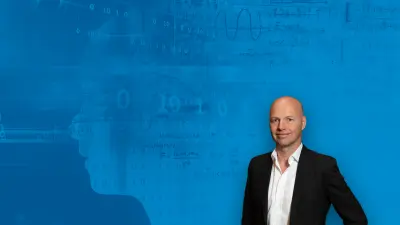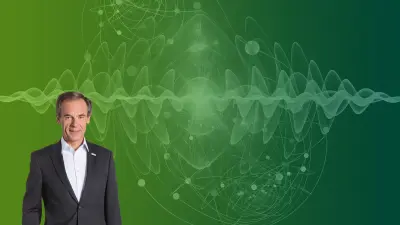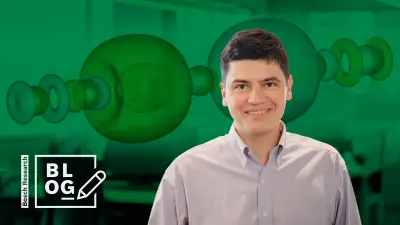The future of quantum computing
In dialogue with the professor of quantum physics and computer science
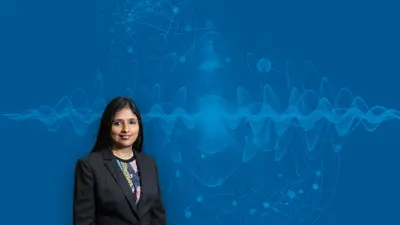
2020-09-10
Quantum computers are revolutionizing computers and are paving the way for innovations — for example, in medicine and the Internet of Things. Shohini Ghose explains what sets quantum computers apart.
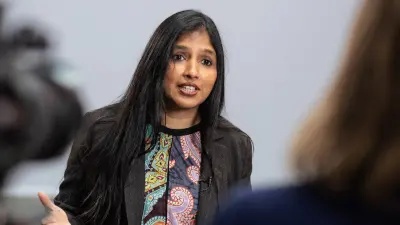
Shohini Ghose’s work begins where our understanding ends. As a physicist, she works in the field of quantum mechanics, which theorizes that there is a probability for a particle to be found in two different locations at a given time — something that seems actually unthinkable. “It is so exciting. We observe those microscopic particles indirectly and develop an explanation of this hidden quantum world,” says Ghose. While this might sound like science fiction, it has concrete real-world applications, especially given that quantum mechanics could revolutionize computers. Ghose explains what this means as follows: “Quantum computers are not just a faster version of our current computers. They operate on the laws of quantum physics. It’s just like a light bulb compared to a candle.”
“Quantum computers can do computing tasks that are outside of the reach of even the best computers today.”
One? Zero? All in between!
Whereas conventional computers use bits as the smallest electronic storage unit, quantum computers use quantum bits — qubits for short. These go beyond the usual binary code of zeros and ones because they can take on any number of overlap states. In other words, it can be described as having a probability of being zero or one. This, which is commonly referred to as a “superposition” state, cannot be compared to anything from our everyday world, but can be easily explained with the following image: imagine a qubit as a sphere with the one at its north pole and the zero at its south pole. While a bit in a conventional computer is in a state of either zero or one, a qubit can take on any in-between state on the surface of the sphere.
This superposition allows qubits to carry out parallel computing operations. “That means we can do computing tasks that are outside of the reach of even the best computers today. We can do calculations faster, and search faster through big data,” says Ghose. Artificial intelligence, which is designed to analyze huge amounts of data, could benefit from this, as could materials and pharmaceutical research. “Future large-scale quantum simulation could perhaps lead to treatments for diseases like Alzheimer’s,” suggests Ghose. In order for that to happen, atom structures need to be precisely analyzed, which is already difficult for mainframe computers that are currently employed by researchers.
“Quantum is one way to really secure the Internet and the communication in the Internet of Things.”
An end to all cyber-attacks?
Quantum computers could also render communication more secure in the way information is “teleported”. There’s another term associated with sci-fi films. However, the phenomenon of “entanglement” lies behind quantum mechanics: two qubits are linked together in such a way that a change to one causes a change to its corresponding qubit. This occurs without time lags, over any distance, and of course without any physical connection such as cables or radio waves.
Using this idea key codes for data transmission could be generated. The clever thing here is that the quantum state of the qubit changes with every unauthorized access — for example, an attack from a hacker. The communication partners would perceive this as a disturbance in their communication, would thus be warned and could use a new key. “Quantum is one way to really secure the Internet and the communication in the Internet of Things”, says Ghose, who works with her team on encryption protocols of this nature.
-273.13° Celsius
is the temperature to which quantum computers must be cooled in order for the qubits to operate reliably.
Why it is important to talk about quantum computers
The immense power of quantum computers also raises ethical questions. On the one hand, they currently consume a great deal of electricity because their chips have to be laboriously cooled down with liquid helium to -273.13° Celsius in what are known as dilution refrigerators. On the other hand, there is a risk that this technology could fall into the wrong hands — should criminals succeed in building a quantum computer, they could use it for the purpose of launching cyber-attacks. They would then be able to crack all data that is encrypted on the basis of conventional computers. Therefore, Ghose is advocating for a social discussion about quantum computers: “I hope that we can address this before the technology is rolled out rather than to catch up and to regulate and control later.” Ghose is convinced that this would allow the enormous potential of the quantum revolution to be put on the right track.
An interview with Dr. Shohini Ghose, professor of quantum physics
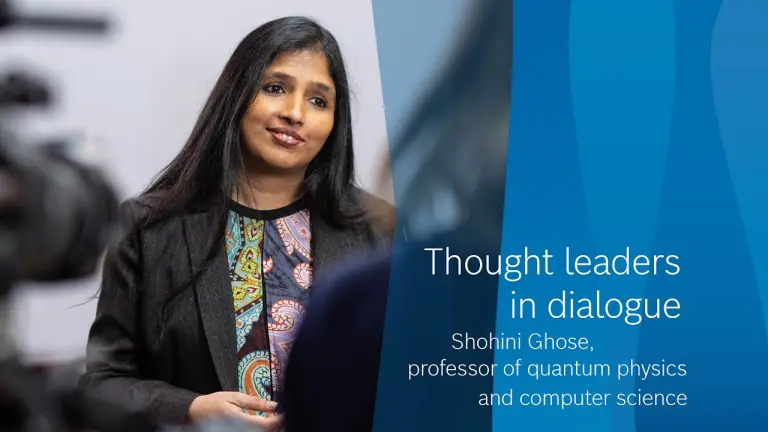
Loading the video requires your consent. If you agree by clicking on the Play icon, the video will load and data will be transmitted to Google as well as information will be accessed and stored by Google on your device. Google may be able to link these data or information with existing data.
Profile
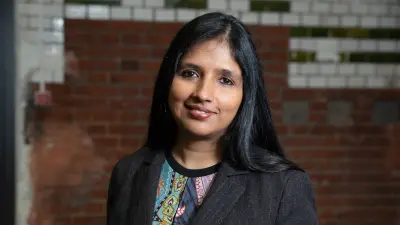
Dr. Shohini Ghose
Professor of quantum physics and computer science at Wilfrid Laurier University in Waterloo, Canada
Quantum offers a way to encrypt information that can never be hacked, no matter how good the hackers are.
Shohini Ghose grew up in India and later studied physics and mathematics at the University of Miami and the University of New Mexico, USA. In 2003 she was a postdoctoral student at the University of Calgary in Canada and one year later became a professor at Wilfrid Laurier University. Together with her colleague Paul Jessen’s team from the University of Arizona, Ghose was the first to show that there is a connection between chaos theory and quantum entanglement in cesium atoms. She is also the founder and director of the Laurier Centre for Women in Science and is the president of the Canadian Association of Physicists.
Summary
Quantum computing makes use of what are referred to as quantum bits, making them more powerful than conventional computers. Among other things, this enables very secure encryption techniques for data transmission on the Internet, says Shohini Ghose. Nevertheless, she warns that the large computing capacity of quantum computers also raises ethical questions that urgently need to be discussed.
